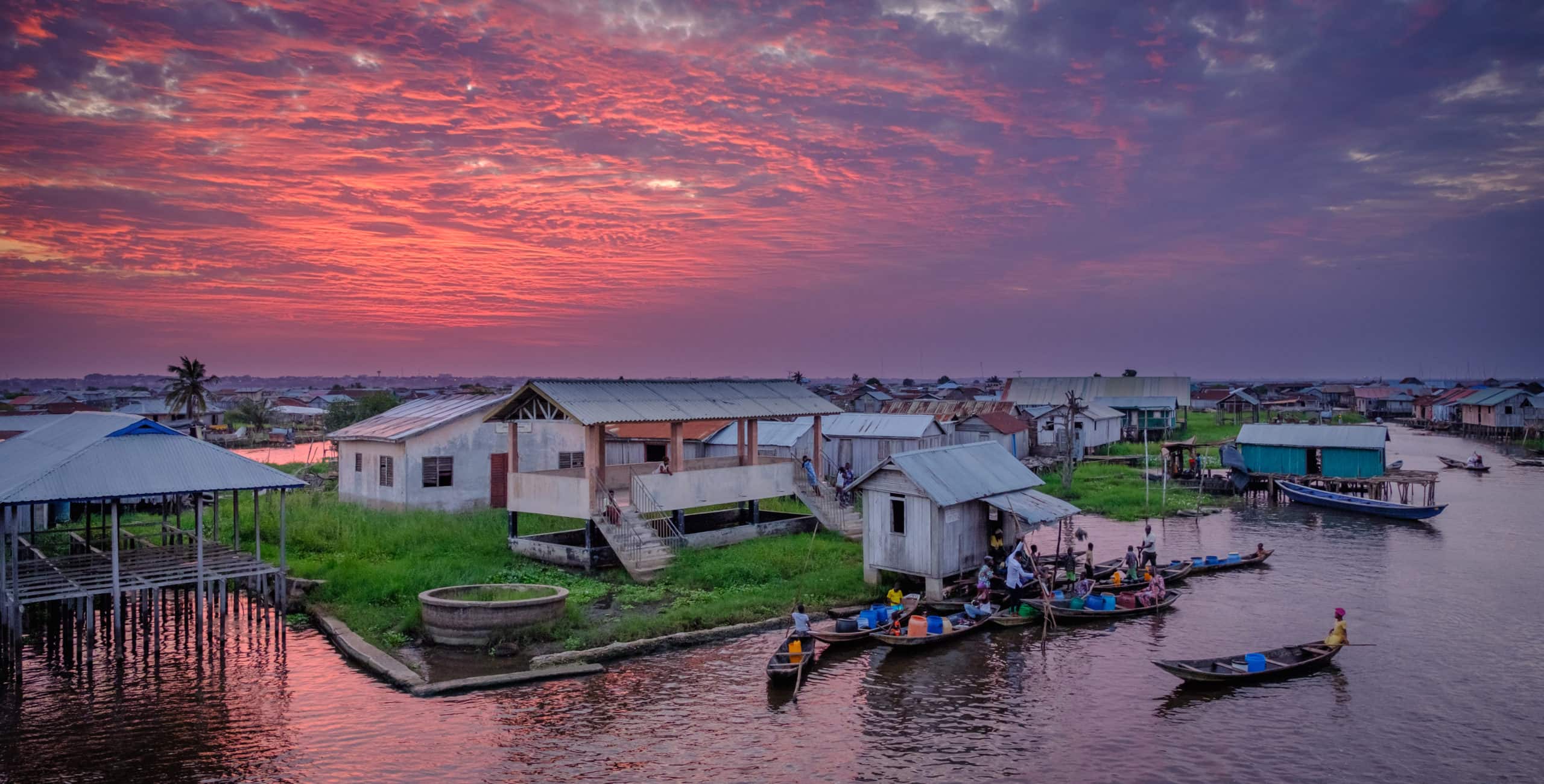
Benin is a small yet vibrant country in West Africa, often overlooked but rich in history and culture. Did you know that Benin is the birthplace of the ancient Kingdom of Dahomey, renowned for its powerful female warriors, the Dahomey Amazons? This country is also the cradle of Voodoo, a religion practiced by millions worldwide. Benin's landscapes range from lush forests to picturesque beaches along the Atlantic coast. Its economy thrives on agriculture, with cotton being a significant export. Despite its size, Benin boasts a diverse population with over 40 ethnic groups. Intrigued by this fascinating nation? Here are 20 facts that will give you a deeper understanding of Benin's unique charm and significance.
Key Takeaways:
- Benin, a diverse country in West Africa, has a rich history, vibrant culture, and stunning natural attractions, making it a must-visit destination for nature enthusiasts and history buffs alike.
- With its varied climate, rich cultural heritage, and growing economy, Benin offers a unique blend of experiences for visitors and a fascinating place to learn about for students interested in geography and history.
Geography and Climate
Benin, a small yet fascinating country in West Africa, boasts a rich tapestry of landscapes and climates. From coastal plains to lush forests, Benin offers a diverse environment.
- Benin is bordered by Togo to the west, Nigeria to the east, Burkina Faso and Niger to the north, and the Atlantic Ocean to the south.
- The country spans approximately 114,763 square kilometers, making it slightly larger than the U.S. state of Pennsylvania.
- Benin's climate varies from tropical in the south to semi-arid in the north.
- The country experiences two rainy seasons, from April to July and September to November, and two dry seasons, from December to April and August to September.
History and Culture
Benin's history is rich with ancient kingdoms, colonial influences, and vibrant cultural traditions. This section delves into some intriguing historical and cultural facts about Benin.
- The Kingdom of Dahomey, which existed from around 1600 to 1904, was one of the most powerful pre-colonial African states in the region.
- Benin was a French colony from 1894 until it gained independence on August 1, 1960.
- The country was known as Dahomey until 1975 when it was renamed Benin after the Bight of Benin.
- Voodoo, or Vodun, originated in Benin and remains a significant religion, with January 10 celebrated as National Voodoo Day.
- The Royal Palaces of Abomey, a UNESCO World Heritage site, were once the seat of the powerful Kingdom of Dahomey.
Economy and Resources
Benin's economy is primarily based on agriculture, trade, and a growing service sector. Here are some key economic facts about Benin.
- Agriculture employs about 70% of Benin's workforce, with cotton being the main cash crop.
- The Port of Cotonou is one of the most important ports in West Africa, serving as a major trade hub for the region.
- Benin is rich in natural resources, including limestone, marble, and oil, though these are not yet fully exploited.
- The country has a growing tourism industry, attracting visitors to its historical sites, national parks, and vibrant culture.
Wildlife and Nature
Benin is home to a variety of wildlife and natural attractions, making it a haven for nature enthusiasts. This section highlights some of Benin's natural wonders.
- Pendjari National Park, part of the W-Arly-Pendjari Complex, is a UNESCO World Heritage site known for its diverse wildlife, including elephants, lions, and hippos.
- The country has several other national parks and reserves, such as W National Park and the Lama Forest Reserve.
- Benin's coastal areas are important nesting sites for sea turtles, particularly the olive ridley and leatherback species.
People and Society
Benin's population is a mosaic of ethnic groups, languages, and traditions. This section explores some aspects of Benin's society and its people.
- Benin has a population of approximately 12 million people, with over 40 ethnic groups, including the Fon, Yoruba, and Bariba.
- French is the official language, but many indigenous languages, such as Fon and Yoruba, are widely spoken.
- The literacy rate in Benin is around 42%, with significant efforts being made to improve education access and quality.
- Benin is known for its vibrant music and dance traditions, including the popular Zangbeto and Egungun masquerades, which are integral to the country's cultural heritage.
Final Thoughts on Benin
Benin, a small West African nation, packs a punch with its rich history, vibrant culture, and unique traditions. From the ancient Kingdom of Dahomey to its role in the transatlantic slave trade, Benin's past is both fascinating and complex. The country is home to the famous Voodoo religion, which influences many aspects of daily life. Its diverse landscapes, from lush forests to beautiful beaches, offer something for every traveler. Benin's wildlife, including the endangered West African lion, adds to its natural allure. Despite its challenges, such as economic struggles and political instability, Benin continues to grow and develop. The resilience and spirit of its people shine through, making it a country worth learning about and visiting. Whether you're a history buff, nature lover, or cultural enthusiast, Benin has something to offer.
Frequently Asked Questions
Was this page helpful?
Our commitment to delivering trustworthy and engaging content is at the heart of what we do. Each fact on our site is contributed by real users like you, bringing a wealth of diverse insights and information. To ensure the highest standards of accuracy and reliability, our dedicated editors meticulously review each submission. This process guarantees that the facts we share are not only fascinating but also credible. Trust in our commitment to quality and authenticity as you explore and learn with us.


